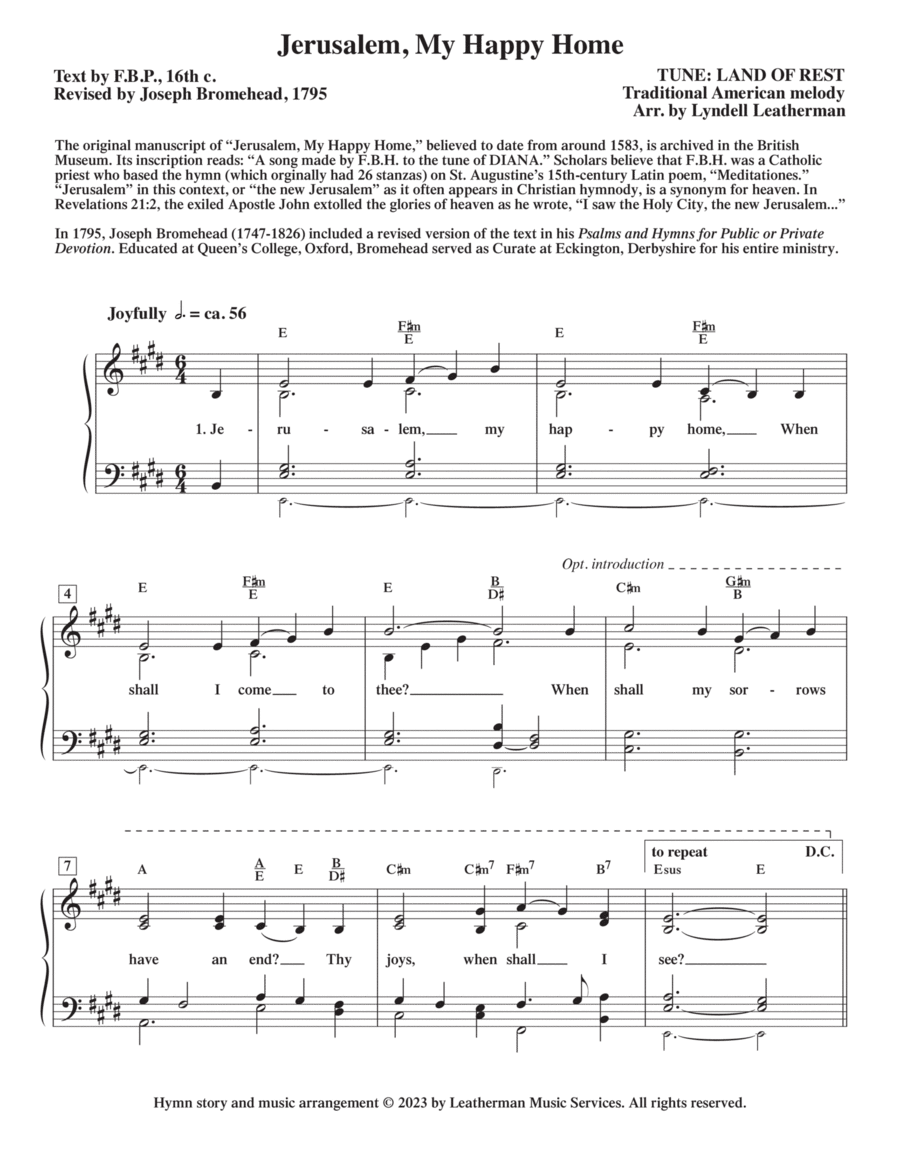Guitar,Piano,Vocal,Voice - Level 3 - Digital Download SKU: A0.1293561 By St. Clement's Choir. By Words: F.B.P. (revised by Joseph Bromehead) / Music: Trad. American melody. Arranged by Lyndell Leatherman. Christian,Religious,Sacred. Score. 2 pages. Leatherman Music Services #884042. Published by Leatherman Music Services (A0.1293561). Welcome to this entry in the Leatherman Library of Hymnody (LLOH).Features of the series include:•Intermediate 2-page arrangements suitable as either piano or organ solos.•Chord symbols included as a service to classical guitarists.•Lyrics included (and occasionally updated) to facilitate congregational singing or vocal solo.•Hymn background information included for personal edification or use as printed program notes.•Optional repeats which allow you to fit into the allotted time available in a service.•An introduction and/or tag in many cases, often incorporating a classical excerpt or related hymn fragment.If you like this format, you may be interested in a published volume of 75 similar arrangements: BEST-LOVED HYMNS I  (© FJH Music, distributed by Alfred Music).************It has long been my passion and privilege to create customized arrangements for the churches and schools with whom I have been associated. Many were published; some were not. During the 2020 slowdown caused by Covid-19, I finally had the time to start posting the unpublished resources on Sheet Music Plus. If you are curious about what else is available, please navigate to my publisher page here on SMP < https://www.sheetmusicplus.com/publishers/leatherman-music-services/16718 >  or slip over to Facebook < https://www.facebook.com/leathermanmusicservices >, where you can see and hear many of my published works. Thanks for your interest!   God bless!Lyndell Leatherman, ASCAP.
